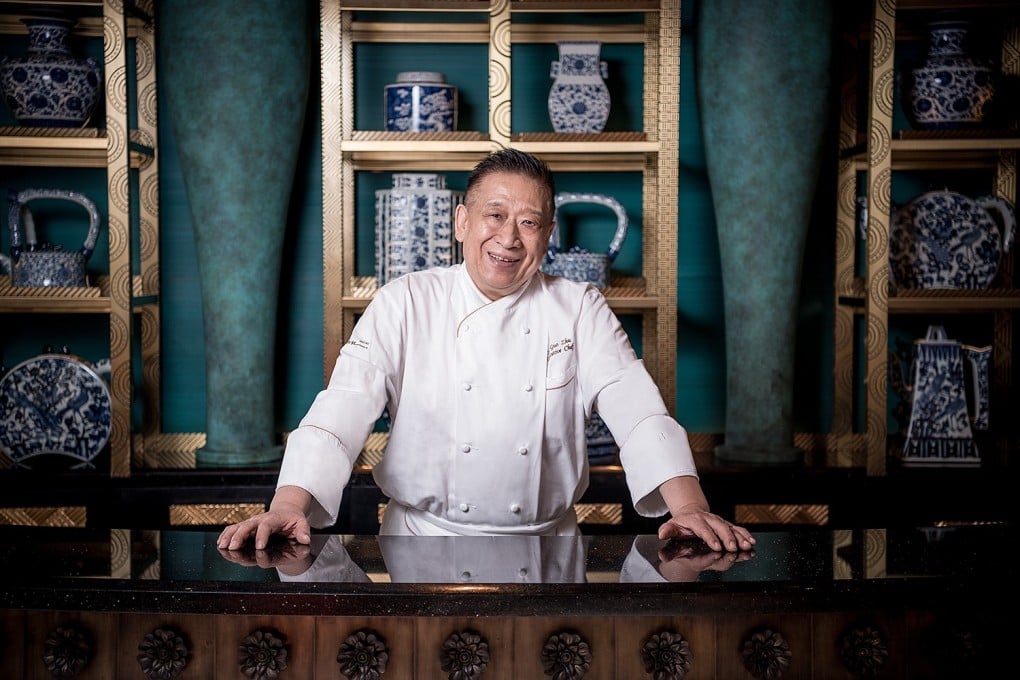When Deng Xiaoping asked for fatty lamb, against the doctor’s orders: Macau chef remembers
- Liu Guo-zhu of Macau’s two-Michelin-star Golden Flower restaurant specialises in Tan family cuisine
- He talks about cooking for China’s late paramount leader and why traditional is important for Chinese chefs

How have you adapted your cooking over the years to take advantage of new ingredients? “When I find new ingredients I like, I develop dishes that use cooking methods tailored for them. At Golden Flower, adjustments have been made to beef with home-made chilli oil in spicy sauce.
“Traditionally, the dish is made with marinated beef, but now that we have Australian wagyu beef, marination is no longer required as the high-fat content of the beef gives it a soft texture. The goal is to appreciate the natural state of the beef. Another modified dish inspired by a traditional recipe is steamed French foie gras with jasmine in clear chicken soup. In Sichuan, there is a liver cream soup. The original recipe uses pork liver, but I replaced it with foie gras.
“To enrich the experience, I put in jasmine and the way to do it is to place the flower in hot broth and cover with a lid for a short period of time. That way, when it is served, steam from the broth will fill the surrounding air with a lovely floral aroma.”
Should Chinese chefs in the modern era respect traditional recipes? “Knowing traditional recipes is a must for Chinese chefs, and these recipes should not be modified in a lighthearted manner. We must cherish our traditions because if recipes can stick around for more than one century, it means that generations of people have approved of them. We must also pass them on to the next generation.

“New innovations have no stories or heritage behind them. They might taste good and look amazing but you cannot tell people much about them. Kung pao chicken was known to have a specific taste profile for decades, characterised by the aroma of lychee layered with a peppery sensation. It is not very spicy, but has a sweet aftertaste. Vinegar is added, but acidity should not be detectable. Only a hint of vinegary fragrance should be noticeable. Some chefs change the taste profile because nowadays people like it sweet and sour. If kung pao chicken turns out to be sweet, sour and spicy, it is no longer a traditional dish.
“As chefs, we must respect tradition. My kung pao chicken is prepared the same way as I did when I was trained as a junior chef. Free-range chicken should be selected, but a good source is difficult to find and I went all the way to Guangzhou to search for the type of chicken I want.”